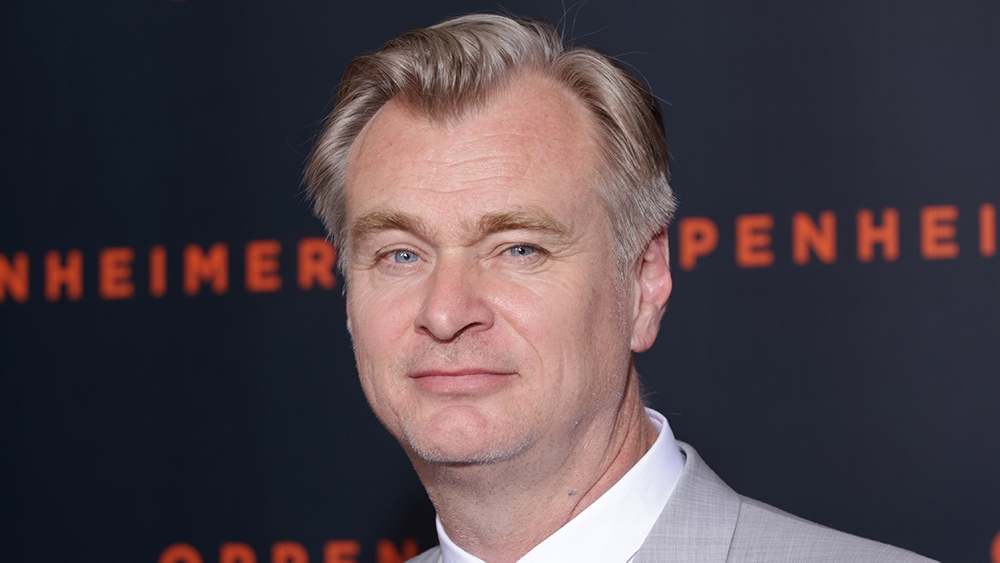Christopher Nolan Warns AI Is Having ‘Oppenheimer Moment’
Christopher Nolan expressed caution about artificial intelligence after a special screening of “Oppenheimer,” drawing a comparison between the rapidly developing technology and his new dramatic feature about the creation of the atomic bomb.
Nolan’s remarks came during a conversation following a preview screening of “Oppenheimer” in New York. Moderated by “Meet the Press” anchor Chuck Todd, the panel included Nolan, as well as Los Alamos National Laboratory director Dr. Thom Mason, physicists Dr. Carlo Rovelli and Dr. Kip Thorne, plus author Kai Bird, who co-wrote “American Prometheus: The Triumph and Tragedy of J. Robert Oppenheimer,” which Nolan’s film is based on.
“The rise of companies in the last 15 years bandying words like algorithm — not knowing what they mean in any kind of meaningful, mathematical sense — these guys don’t know what an algorithm is,” Nolan shared at the screening. “People in my business talking about it, they just don’t want to take responsibility for whatever that algorithm does.”
“Applied to AI, that’s a terrifying possibility. Terrifying,” Nolan continued. “Not least because, AI systems will go into defensive infrastructure ultimately. They’ll be in charge of nuclear weapons. To say that that is a separate entity from the person wielding, programming, putting that AI to use, then we’re doomed. It has to be about accountability. We have to hold people accountable for what they do with the tools that they have.”
Nolan’s new feature retells how J. Robert Oppenheimer was tapped by U.S. military powers to develop the atomic bomb during World War II. Cillian Murphy plays the theoretical physicist, leading a cast that includes Emily Blunt, Matt Damon, Robert Downey Jr. and Florence Pugh.
Nolan’s comments come as the entertainment industry is at a near-complete halt, with SAG-AFTRA ordering a strike on Thursday to join WGA members on the picket lines. Among numerous other disagreements with studios, a primary issue for both unions is the matter of AI and its potential existential impact on labor practices in the entertainment industry.
“With the labor disputes going on in Hollywood right now, a lot of it — when we talk about AI, when we talk about these issues — they’re all ultimately born from the same thing, which is when you innovate with technology, you have to maintain accountability,” Nolan stated.
“Do you think we’ll keep re-examining Oppenheimer? As our understanding of quantum physics continues, as our taming of the atom continues,” Todd asked at one point in the panel.
“I hope so,” Nolan stated. “When I talk to the leading researchers in the field of AI right now, for example, they literally refer to this — right now — as their Oppenheimer moment. They’re looking to history to say, ‘What are the responsibilities for scientists developing new technologies that may have unintended consequences?’”
“Do you think Silicon Valley is thinking that right now?” Todd interjected. “Do you think they say that this is an Oppenheimer moment?”
“They say that they do,” Nolan said after a pause and then chuckled. “It’s helpful that that’s in the conversation and I hope that that thought process will continue. I am not saying Oppenheimer’s story offers any easy answers to those questions, but it at least can show where some of those responsibilities lie and how people take a breath and think, ‘Okay, what is the accountability?’”
In a piece published by the New York Times in May, AI pioneer Dr. Geoffrey Hinton expressed regret regarding his life work. Hinton’s work at the University of Toronto laid the groundwork for the tech industry’s investment in generative artificial intelligence, which powers chatbots such as ChatGPT.
“I console myself with the normal excuse: If I hadn’t done it, somebody else would have,” Dr. Hinton told the Times. “It is hard to see how you can prevent the bad actors from using it for bad things.”
Universal Pictures is releasing “Oppenheimer” to theaters on July 21.

